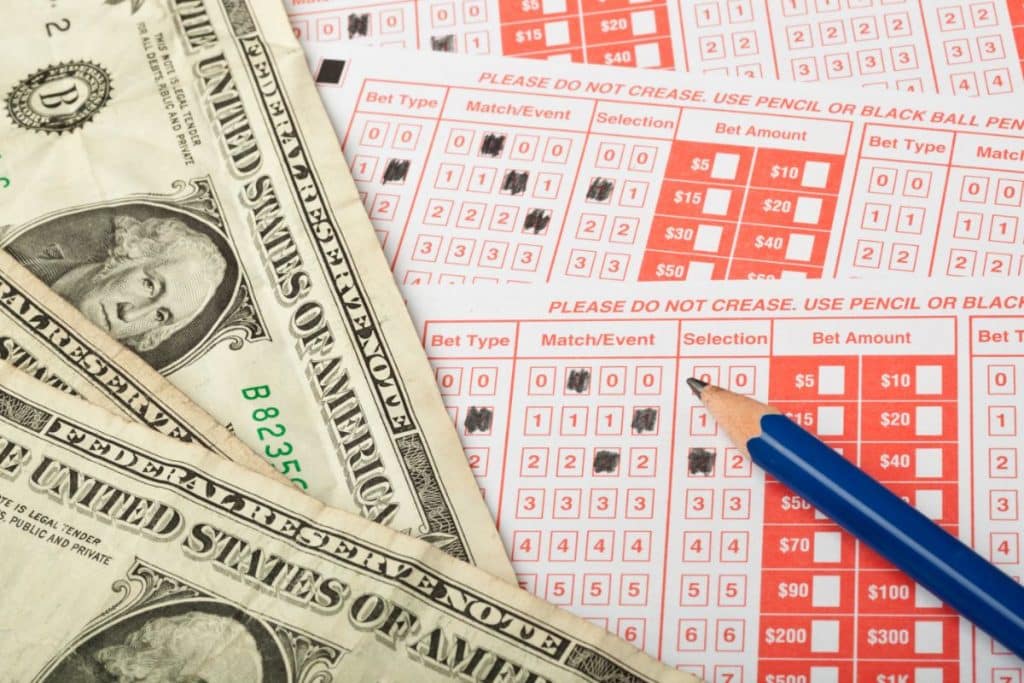As a bookie, one of the most important aspects of your job is managing the cash out betting process, which is a valuable tool for both bettors and bookies alike, as it allows for greater flexibility and risk management.
If you are new to the industry, we are talking about the ability of a bettor to settle a wager before the outcome of the event is determined.
So, how exactly do bookies calculate cash-out values?
In this article, we’ll take a closer look at the process of cashing out bets, including how bookies calculate cash-out values and some tips for successful cash-out management.
So, if you are just starting out in the world of bookmaking, keep reading below to gain some valuable insights into one of the most critical aspects of the job!
Understanding The Basics Of Cash Out Betting
Before we move on to explaining how bookies calculate cash-out betting, we should explain to you first what that is.
Definition Of Cash Out Betting
To put it simply, cash-out betting refers to the ability of a bettor to settle a wager before the outcome of the event is determined.
This means that bettors can choose to withdraw their stake and receive a portion of their potential winnings, based on the current state of the event.
This betting type can be compared to traditional betting, where the bettor must wait until the event concludes to determine the outcome of the wager.
Examples Of Popular Sports And Events Where Cash Out Is Offered
Some examples of where cash-out betting can be offered are sports like football, basketball, tennis, and horse racing.
In football, for example, bettors can cash out their wager if their team is winning but they are concerned about a potential comeback by the opposing team.
In horse racing, on the other hand, bettors can cash out if their selected horse is leading but they are unsure if it will maintain its lead until the finish line.
Successful cash-out scenarios can vary based on the sport and event, but they generally involve the bettor taking advantage of the flexibility offered by cash-out betting to secure a profit or reduce a potential loss.
What Are The Pros And Cons Of Cash Out Betting?
Cash-out betting offers several advantages for bookies, but it also comes with some disadvantages. Let’s look at what those are:
Advantages Of Cash Out Betting
For bookies, cash out can help manage risk by allowing them to balance their liabilities and reduce exposure to large payouts.
Moreover, it can also increase engagement and participation in betting, as bettors are more likely to place wagers knowing they have the option to cash out if necessary.
Potential Downsides Of Cash Out Betting
While cash-out betting offers many benefits, there are also potential downsides to consider.
For bookies, it can increase risk if the bettor cashes out at a favorable value, and then the outcome of the event changes, leading to a larger payout than anticipated.
Not only that but it can also have a negative impact on the integrity of the event, as you might be incentivized to manipulate the outcome to ensure a cash-out win.
Factors Affecting Cash Out Values

As a bookie, it’s important to understand the various factors that can impact cash-out values, as this will allow you to set accurate prices and manage your liabilities effectively.
Here are some of the key factors to consider.
Current Odds And Probabilities
The current odds and probabilities of the event are a major factor in determining cash-out values.
As the event progresses and the outcome becomes more certain, the odds will change, and this will be reflected in the cash-out value.
For example, if a football team is leading 2-0 with 10 minutes remaining in the match, the cash-out value will be higher than if the score was tied 1-1 at halftime.
Bet Size And Stake
The size of the bet and the stake placed by the bettor can also impact cash-out values.
Generally, larger bets will have a higher cash-out value, as there is more potential liability for the bookie.
Moreover, the initial stake will be factored into the cash-out value, with higher stakes leading to higher cash-out values.
Timing And Market Conditions
The timing of the cash-out request and the overall market conditions can also impact cash-out values.
For example, if there are many bettors requesting a cash-out at the same time, this may lead to a lower cash-out value due to increased demand.
Similarly, if the market is volatile or there are significant changes in odds, the cash-out value may fluctuate rapidly.
Bet Type And Complexity
Finally, the type and complexity of the bet can also impact cash-out values.
For example, a simple win-or-lose bet will have a straightforward cash-out value, while more complex bets such as accumulators or parlays may require additional calculations and adjustments to determine the cash-out value.
By taking these factors into account, you can set accurate cash-out values and manage your liabilities effectively, providing a better experience for your customers and maximizing profitability for your business.
Calculating Cash Out Values
It’s not time to take you through the steps of calculating cash-out values. So, here’s what you have to do:
Step 1: Determine The Original Bet
The first step is to determine the original bet placed by the bettor. This will include the stake amount and the odds of the bet at the time it was placed.
Step 2: Calculate The Current Value
Next, calculate the current value of the bet based on the current odds and probabilities of the event.
This can be done using a simple formula that takes into account the original odds and the current odds, as well as the stake amount.
Step 3: Deduct Bookmaker’s Margin
The bookmaker’s margin must be taken into account when calculating cash-out values. This is the percentage that the bookie keeps as profit on each bet, and is typically around 5-10%.
To calculate the bookmaker’s margin, simply subtract the current odds from 1, and then divide by the current odds.
Step 4: Adjust For Bet Type And Complexity
Finally, adjust the cash-out value for any special considerations related to the bet type and complexity. This may include adjustments for accumulators or parlays, or for bets that have been partially settled.
Cash Out Betting – The Bottom Line
Cash-out betting is a critical aspect of modern bookmaking, and it’s essential for you as a bookie to have a solid understanding of how it works in order to provide a competitive and transparent service to your customers.
It’s also important for you to keep in mind that successful cash-out management is an ongoing process, and requires constant monitoring and adjustment in order to stay competitive and profitable.
So, follow the steps outlined in this article and stay up to date with the latest market trends and technologies to make sure you provide a superior cash-out experience to your customers and ensure your long-term success in the industry!
You May Also Like:



